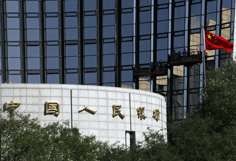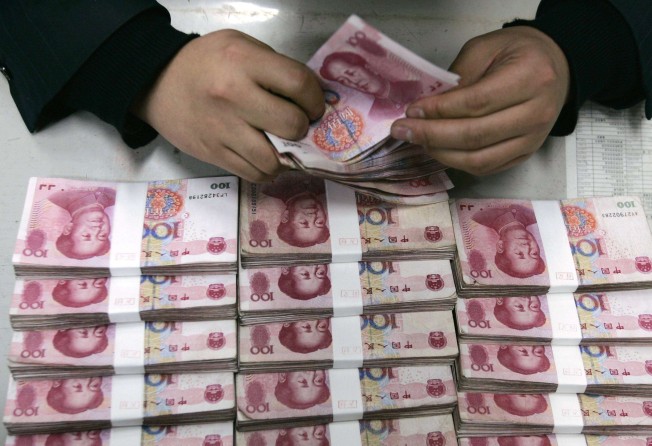
China’s bond market to change in second half as investors avoid risk
Onshore investors recalibrate expectations of implicit central government support for state-owned enterprises and exhibit risk aversion towards overcapacity sectors, analysts say

Issuance patterns in China’s bond market look set to change in the second half of this year as private sector debt falls and public debt increases, according to analysts.
In Moody’s Investor Services Interbank Bond Monitor published last week, Ivan Chung, a Moody’s associate managing director wrote: “We expect the growth pattern in bond issuance will begin to change in the second half of 2016. Issuance by the corporate sector will slow down despite strong growth in the first quarter of 2016. On the other hand, bond issuance by central and policy banks, as well as RLGs [regional and local governments], will likely continue.”
The change started to become apparent in the second quarter of this year. According to data compiled by Bloomberg, between April and July Chinese companies sold 1.85 trillion yuan (HK$2.15 trillion) of onshore bonds, a 30 per cent drop from the previous three months, and the sharpest quarter-on-quarter decline since September 2011.
Meanwhile, the number of public bond defaults in the first five months of 2016 exceeded the total for the entire 2015. “These incidents have prompted onshore investors to recalibrate their expectation of implicit government support for state-owned enterprises and increase their risk aversion towards overcapacity sectors,”Chung wrote.
“These changes have resulted in widening credit spreads between bonds of high and low domestic ratings and a significant rise in cancellation of new bond issuance in April.”

One example of an industry where this has been seen is China’s steel sector. “Over-capacity and over-leverage remain significant challenges for the Chinese steel industry, and we believe that this will contribute to continued high credit risks in the sector following several high-profile defaults in late 2015 and early 2016,” said a commentary released last week by ratings agency Fitch.
Even successful companies operating in over-capacity sectors may suffer due to investors’ concerns. “Investors’ increasing risk aversion towards overcapacity sectors such as coal mining and steel is impacting the refinancing and funding costs of not only companies with weaker credit quality but also the leading SOEs in overcapacity sectors, albeit to a lesser extent,” according to Chung. “This is because investors worry that the stronger and leading SOEs in overcapacity sectors may be used by their owner governments to acquire weaker SOE players to help the debt restructuring process.”
In June, China’s official manufacturing PMI came in at 50, right on the level that separates contraction from expansion, whereas the Caixin manufacturing PMI dropped to 48.6.
Julia Wang, greater China economist at HSBC, said that in the past the Caixin gauge has fallen more when the weakness is export-related. China’s national statistics bureau said that restructuring of over-capacity industries meant that growth has also slowed markedly in those parts of the economy as well. “Both factors will likely continue to weigh on growth in the near term,” wrote Wang in a research report.
Risk aversion towards overcapacity sectors ...is impacting the refinancing and funding costs of not only companies with weaker credit quality but also the leading SOEs in overcapacity sectors
In May, the ministry of finance said China’s central and local governments had the capacity to increase their debt to help mitigate the impact on the economy of deleveraging programmes by private corporationsand that they would consider making use of this capacity.
Such debt may prove attractive to investors. Fourteen of 22 respondents to a survey of investors and analysts conducted by Bloomberg said they were most interested in buying securities issued by the government and policy banks in the next quarter, compared to just four out of 19 respondents who said the same three months ago.
Bonds linked tothe Chinese authorities also seem likely to prove more popular to overseas investors, increasing numbers of whom are now able to access China’s onshore bond market under this year’s ongoing liberalisation process.
“Despite the widened market access, we think investments by foreign investors in the CIBM will be
concentrated in sovereign, sub-sovereign and policy bank bonds. Investments beyond government and quasi-government credits in the CIBM [Chinese interbank bond market] will be limited due to evolving disclosures and investor protection mechanisms,” wrote Chung.